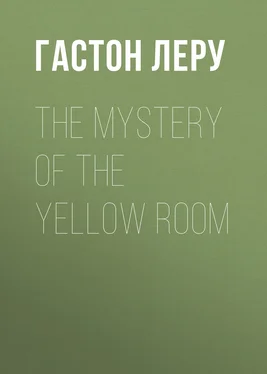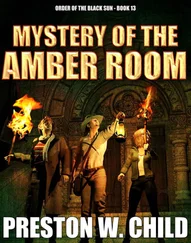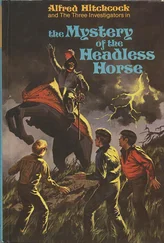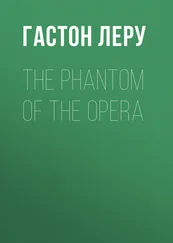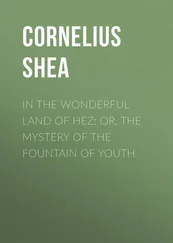Гастон Леру - The Mystery of the Yellow Room
Здесь есть возможность читать онлайн «Гастон Леру - The Mystery of the Yellow Room» — ознакомительный отрывок электронной книги совершенно бесплатно, а после прочтения отрывка купить полную версию. В некоторых случаях можно слушать аудио, скачать через торрент в формате fb2 и присутствует краткое содержание. Жанр: foreign_prose, literature_20, Ужасы и Мистика, foreign_antique, на английском языке. Описание произведения, (предисловие) а так же отзывы посетителей доступны на портале библиотеки ЛибКат.
- Название:The Mystery of the Yellow Room
- Автор:
- Жанр:
- Год:неизвестен
- ISBN:нет данных
- Рейтинг книги:5 / 5. Голосов: 1
-
Избранное:Добавить в избранное
- Отзывы:
-
Ваша оценка:
- 100
- 1
- 2
- 3
- 4
- 5
The Mystery of the Yellow Room: краткое содержание, описание и аннотация
Предлагаем к чтению аннотацию, описание, краткое содержание или предисловие (зависит от того, что написал сам автор книги «The Mystery of the Yellow Room»). Если вы не нашли необходимую информацию о книге — напишите в комментариях, мы постараемся отыскать её.
The Mystery of the Yellow Room — читать онлайн ознакомительный отрывок
Ниже представлен текст книги, разбитый по страницам. Система сохранения места последней прочитанной страницы, позволяет с удобством читать онлайн бесплатно книгу «The Mystery of the Yellow Room», без необходимости каждый раз заново искать на чём Вы остановились. Поставьте закладку, и сможете в любой момент перейти на страницу, на которой закончили чтение.
Интервал:
Закладка:
“Excuse me, Monsieur Jacques, one question before anything else,” said Rouletabille.
“What is it, young man? If I can answer it—”
“Did your mistress wear her hair in bands, that evening? You know what I mean—over her forehead?”
“No, young man. My mistress never wore her hair in the way you suggest, neither on that day nor on any other. She had her hair drawn up, as usual, so that her beautiful forehead could be seen, pure as that of an unborn child!”
Rouletabille grunted and set to work examining the door, finding that it fastened itself automatically. He satisfied himself that it could never remain open and needed a key to open it. Then we entered the vestibule, a small, well-lit room paved with square red tiles.
“Ah! This is the window by which the murderer escaped!” said Rouletabille.
“So they keep on saying, monsieur, so they keep on saying! But if he had gone off that way, we should have been sure to have seen him. We are not blind, neither Monsieur Stangerson nor me, nor the concierges who are in prison. Why have they not put me in prison, too, on account of my revolver?”
Rouletabille had already opened the window and was examining the shutters.
“Were these closed at the time of the crime?”
“And fastened with the iron catch inside,” said Daddy Jacques, “and I am quite sure that the murderer did not get out that way.”
“Are there any blood stains?”
“Yes, on the stones outside; but blood of what?”
“Ah!” said Rouletabille, “there are footmarks visible on the path—the ground was very moist. I will look into that presently.”
“Nonsense!” interrupted Daddy Jacques; “the murderer did not go that way.”
“Which way did he go, then?”
“How do I know?”
Rouletabille looked at everything, smelled everything. He went down on his knees and rapidly examined every one of the paving tiles. Daddy Jacques went on:
“Ah!—you can’t find anything, monsieur. Nothing has been found. And now it is all dirty; too many persons have tramped over it. They wouldn’t let me wash it, but on the day of the crime I had washed the floor thoroughly, and if the murderer had crossed it with his hobnailed boots, I should not have failed to see where he had been; he has left marks enough in Mademoiselle’s chamber.”
Rouletabille rose.
“When was the last time you washed these tiles?” he asked, and he fixed on Daddy Jacques a most searching look.
“Why—as I told you—on the day of the crime, towards half-past five—while Mademoiselle and her father were taking a little walk before dinner, here in this room: they had dined in the laboratory. The next day, the examining magistrate came and saw all the marks there were on the floor as plainly as if they had been made with ink on white paper. Well, neither in the laboratory nor in the vestibule, which were both as clean as a new pin, were there any traces of a man’s footmarks. Since they have been found near this window outside, he must have made his way through the ceiling of “The Yellow Room” into the attic, then cut his way through the roof and dropped to the ground outside the vestibule window. But—there’s no hole, neither in the ceiling of “The Yellow Room” nor in the roof of my attic—that’s absolutely certain! So you see we know nothing—nothing! And nothing will ever be known! It’s a mystery of the Devil’s own making.”
Rouletabille went down upon his knees again almost in front of a small lavatory at the back of the vestibule. In that position he remained for about a minute.
“Well?” I asked him when he got up.
“Oh! nothing very important,—a drop of blood,” he replied, turning towards Daddy Jacques as he spoke. “While you were washing the laboratory and this vestibule, was the vestibule window open?” he asked.
“No, Monsieur, it was closed; but after I had done washing the floor, I lit some charcoal for Monsieur in the laboratory furnace, and, as I lit it with old newspapers, it smoked, so I opened both the windows in the laboratory and this one, to make a current of air; then I shut those in the laboratory and left this one open when I went out. When I returned to the pavilion, this window had been closed and Monsieur and Mademoiselle were already at work in the laboratory.”
“Monsieur or Mademoiselle Stangerson had, no doubt, shut it?”
“No doubt.”
“You did not ask them?”
After a close scrutiny of the little lavatory and of the staircase leading up to the attic, Rouletabille—to whom we seemed no longer to exist—entered the laboratory. I followed him. It was, I confess, in a state of great excitement. Robert Darzac lost none of my friend’s movements. As for me, my eyes were drawn at once to the door of “The Yellow Room”. It was closed and, as I immediately saw, partially shattered and out of commission.
My friend, who went about his work methodically, silently studied the room in which we were. It was large and well-lighted. Two big windows—almost bays—were protected by strong iron bars and looked out upon a wide extent of country. Through an opening in the forest, they commanded a wonderful view through the length of the valley and across the plain to the large town which could be clearly seen in fair weather. To-day, however, a mist hung over the ground—and blood in that room!
The whole of one side of the laboratory was taken up with a large chimney, crucibles, ovens, and such implements as are needed for chemical experiments; tables, loaded with phials, papers, reports, an electrical machine,—an apparatus, as Monsieur Darzac informed me, employeed by Professor Stangerson to demonstrate the Dissociation of Matter under the action of solar light—and other scientific implements.
Along the walls were cabinets, plain or glass-fronted, through which were visible microscopes, special photographic apparatus, and a large quantity of crystals.
Rouletabille, who was ferreting in the chimney, put his fingers into one of the crucibles. Suddenly he drew himself up, and held up a piece of half-consumed paper in his hand. He stepped up to where we were talking by one of the windows.
“Keep that for us, Monsieur Darzac,” he said.
I bent over the piece of scorched paper which Monsieur Darzac took from the hand of Rouletabille, and read distinctly the only words that remained legible:
“Presbytery—lost nothing—charm, nor the gar—its brightness.”
Twice since the morning these same meaningless words had struck me, and, for the second time, I saw that they produced on the Sorbonne professor the same paralysing effect. Monsieur Darzac’s first anxiety showed itself when he turned his eyes in the direction of Daddy Jacques. But, occupied as he was at another window, he had seen nothing. Then tremblingly opening his pocket-book he put the piece of paper into it, sighing: “My God!”
During this time, Rouletabille had mounted into the opening of the fire-grate—that is to say, he had got upon the bricks of a furnace—and was attentively examining the chimney, which grew narrower towards the top, the outlet from it being closed with sheets of iron, fastened into the brickwork, through which passed three small chimneys.
“Impossible to get out that way,” he said, jumping back into the laboratory. “Besides, even if he had tried to do it, he would have brought all that ironwork down to the ground. No, no; it is not on that side we have to search.”
Rouletabille next examined the furniture and opened the doors of the cabinet. Then he came to the windows, through which he declared no one could possibly have passed. At the second window he found Daddy Jacques in contemplation.
“Well, Daddy Jacques,” he said, “what are you looking at?”
Читать дальшеИнтервал:
Закладка:
Похожие книги на «The Mystery of the Yellow Room»
Представляем Вашему вниманию похожие книги на «The Mystery of the Yellow Room» списком для выбора. Мы отобрали схожую по названию и смыслу литературу в надежде предоставить читателям больше вариантов отыскать новые, интересные, ещё непрочитанные произведения.
Обсуждение, отзывы о книге «The Mystery of the Yellow Room» и просто собственные мнения читателей. Оставьте ваши комментарии, напишите, что Вы думаете о произведении, его смысле или главных героях. Укажите что конкретно понравилось, а что нет, и почему Вы так считаете.
